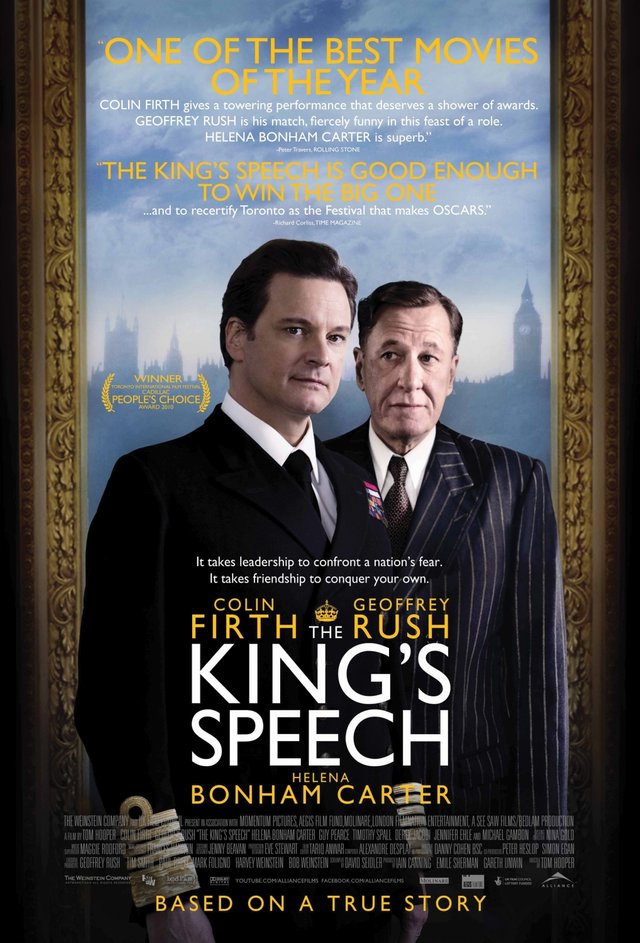The King's Speech (2011)

Release Date: 7 January, 2011
What's It About: Fictional account of the late reign of English Monarch George V, as his eldest son Edward VIII ascends to take the throne and later abdicates it to his younger brother George VI. The story of George VI follows his time with a speech therapist to help him cure his stuttering that plagues him in public speaking.
The Good: A great period piece set in 1930's England at the start of World War II. Albert's relationship with his speech therapist Lionel Logue is an interesting and unusual one in which Logue swears around him and calls him 'Bertie', and this is well-done in the film (but likely did not happen in real life). I personally liked the pacing of the film and the treatment of Edward VIII's abdication, which didn't drag out. The stammering element of the film was very accurate and realistic, and was praised by speech therapists.
The Bad: There was a certain degree of artistic license taken with the film to smooth out the film's timeline of events. There are also a number of people present in the film who don't play roles of the same importance in reality, such as that of Winston Churchill. The Buckingman Palace scene at the end of the film does not take in real life either. Some of the depictions of other characters are also inaccurate.
Best Performance: Colin Firth as Albert/Bertie/King George VI. A great deal of research and effort went into the stammer that his character exhibits throughout the film, and so deep was his immersion into it that Colin Firth was still displaying the stammer months after the release of the film in interviews. Firth's performance is understated and subtle, which portrays his heroism as passive and unassuming.
Should I Watch It: An interesting look at the royal family from the bottom up, rather than the top down. It depicts the future kings of the Commonwealth as human and people like you and me, especially Edward VIII, who abdicated the throne to marry his lover. The drama doesn't feel contrived or melodramatic, and alot of the character development is rooted in the historical context of the film, which ties them together and moves them along.
Post-Credits Scene: No
Similar Films: The Queen (2006), The Iron Lady (2011), The Imitation Game (2010)
Trailer: